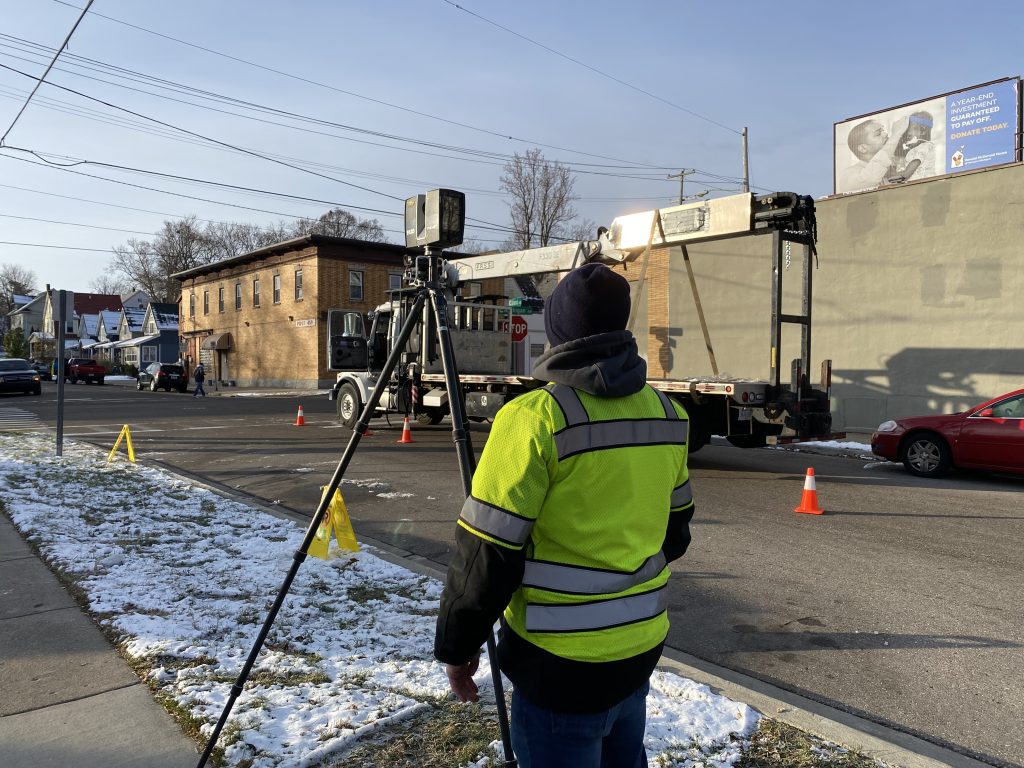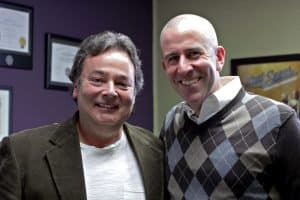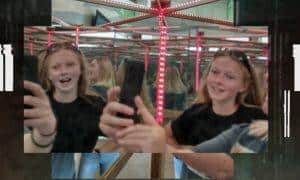Use Site Inspections and Testing to Challenge Video Expert Opinion

Attorneys frequently offer audio, video, and digital images as evidence in civil and criminal litigation, where the interpretation of the evidence becomes a matter of expert opinion. Is the expert qualified to interpret the video evidence and make determinations, and are their statements based on widely accepted methodology with a scientific foundation? This is where a rebuttal video expert witness becomes very important in a case.
Attorneys frequently offer audio, video, and digital images as evidence in civil and criminal litigation, where the interpretation of the evidence becomes a matter of expert opinion. Is the expert qualified to interpret the video evidence and make determinations, and are their statements based on widely accepted methodology with a scientific foundation?
In a previous post, I discussed whether an expert is qualified to interpret video recording evidence. This post discusses whether an expert’s opinion of video recording evidence lacks rigor and a scientific foundation.
When litigation relies on observing and interpreting a digital video recording or its absence, the attorneys on either side of a case can be incorrect—even misleading. Without understanding how the video recording equipment works, definitive opinions on a recording are premature and subjective. In most cases, a site inspection allows a video expert to investigate the video equipment that captured the recording and reach a more definitive, objective position on the evidence based on a scientific foundation.
An Expert Walks into the Courtroom
Suppose an expert walks into the courtroom and renders an opinion with 100 percent certainty that a video recording system did not capture images to support or oppose a litigation strategy. Yet, the expert did not test the recording system. The opposing party should retain an audio-visual expert to rebut the expert’s methodology or offer a more accurate method.
Attorneys use a rebuttal video expert to refute subjective opinions based on observation and conjecture, not quantitative analysis, which can mislead a judge or jury. A rebuttal video expert witness can examine the video system properties and configuration to support their methodology and offer an alternative explanation of an opposing party’s expert view of the facts.
A rebuttal video expert should generate sample recordings using the same or similar equipment and apply various scenarios with which the evidence would have been captured and acquired. The investigation should include comparing device-specific metadata, stream characteristics, and proprietary encoding structures. This objective approach ensures the examiner or expert reaches the most accurate, peer-reviewable opinions.
Some experts provide opinions without understanding the limits of their methods or their offered opinions. In short, they don’t know what they don’t know. They step outside of their lane of expertise and provide testimony without fully understanding the discipline’s methodology. That is where a rebuttal expert witness, properly trained in a particular domain like audio-video forensics, can assist counsel.
A rebuttal video expert steeped in video forensics knows the limits that apply to video analysis, video authentication, video enhancement, reverse projection, and videogrammetry. These limits should set expectations and parameters and keep experts in their swim lanes. Exceeding them can render their opinions misleading and inaccurate.
Rebuttal Video Experts in Action
When experts inspect on-site video recording systems, they can generate information to rebut expert witness testimony. The rebuttal video expert can identify and test known system variables to support their opinions and oppose other expert opinions. Using peer-reviewable methods and on-site testing, video experts can determine boundaries within which an expert can testify about a specific methodology, provide questions and answers to discredit an expert’s testimony, and identify short-sightedness in their views.
On-Premises
A large corporation retained Primeau Forensics to investigate the validity of an opinion offered by a federal investigator on the authenticity of video surveillance recordings captured at the corporation’s location. Our client was accused of malicious tampering with the recorded evidence where there were abrupt changes in the personnel captured in the video recordings.
We conducted an on-site investigation to determine how our client’s video management system (VMS) detected motion and whether it accurately captured it on video. Through exemplar testing, we walked within the zones where movement should trigger video capture.
The VMS was more sophisticated than the average CCTV surveillance system. The VMS included threshold parameters for motion detection requiring sensitivity calibration. However, we found the system was not calibrated properly to detect the motion in question and thus did not engage the video recorder. We reported the testing results, confirming that the motion sensitivity threshold was insufficient to detect all movement from personnel in the monitored zones.
Off-Premises
A city attorney retained Primeau Forensics to defend an officer-involved shooting (OIS). The plaintiff’s expert opined on the lack of audio evidence, claiming the officer intentionally deactivated his body-worn wireless lapel microphone. We investigated as a rebuttal witness to determine if the plaintiff expert’s opinion was scientifically valid.
Through rigorous microphone testing, we identified and recorded several audio signals that indicated how the microphone behaved. The microphone emitted different sound profiles in a recording when we manually deactivated it and when the battery died. We recorded both exemplar signals using an in-car camera system like the vehicle used in the OIS case. We compared the test results with the microphone’s audio signals captured by the in-car camera system, indicating that the officer did not deactivate the microphone—the battery died.
The Last Words
Testing video camera systems on and off-site with objective, widely acceptable methodology prevails over subjective observations of video evidence and faulty methodology. Having a rebuttal video expert on your team can provide a scientific foundation for why an opposing expert is incorrect, especially when making conclusions about what the human eye saw versus what a camera recorded. Those are the last words you will need to dispute the account of an expert witness.
If you need a video expert’s methodology or opinions evaluated, contact us and speak directly to an expert for a no-cost consultation. A site inspection may be just what your case needs.


